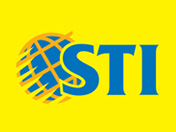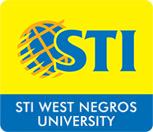Company Policies
WHISTLE-BLOWING POLICY
Non-Retaliation
A. In order for this Code to be effective, directors, officers and employees must feel free to bring forth their good faith concerns without the fear of retribution or retaliation from the Company or any other director, officer or employee. The Company does not condone nor will it not tolerate any retaliation against an individual who lawfully and in good faith reports any misconduct or violations of this Code. Further, an employee who gives information regarding any conduct the employee reasonably believes constitutes a violation of the securities laws or financial fraud statutes (1) to any government authority, (2) by testimony or otherwise in any proceeding pending or about to be commenced concerning such violation or (3) to any person with supervisory authority over the employee or authorized by the Company to investigate such conduct, may not be discharged, demoted, discriminated or otherwise retaliated against based upon the information they have provided.
B. Directors, officers and employees if asked, are expected to fully cooperate in internal and external investigations of any reported or alleged misconduct or violation of this Code.
CONFLICT OF INTEREST
The Company's directors, officers and employees have an obligation to avoid any actions or affiliations that may involve, or appear to involve, a conflict of interest with the Company.
(1) No Director, officers and employees should have any financial or other business relationship with suppliers, customers or competitors that can impair their independence or cloud any judgment they may need to make on behalf of the Company.
(2) No Employee, officer and director should engage in any activity that competes with the Company. If an officer or employee is aware of a possible or actual conflict of interest concerning himself or herself or another officer or employee, or is concerned that one might develop, he or she should declare it to higher management. If a director is aware of a possible or actual conflict of interest regarding himself or herself or another director, or concerned that one might develop, he or she should discuss it with the Chairman of the Audit Committee. The Audit Committee has the responsibility for review and resolution of conflicts of interest and approval of related party transactions involving directors and officers of the Company.
A. Actions Counter to the Company's Best Interests
(1) A director, officer or employee may not divert a business opportunity that could reasonably be expected to be of interest or benefit to the Company, for his or her own personal benefit. If he/she becomes aware of such a business opportunity through the use of corporate property, information or position, he or she should declare the matter and the relevant facts to the CEO. If a director becomes aware of such a business opportunity through the use of corporate property, information or position, he or she should disclose the matter and the relevant facts to the Chairman of the Audit Committee for review and consideration. If the Company makes determination that it is not interested in pursuing the disclosed opportunity and has no reasonable objections, the director, officer or employee may then pursue the opportunity for his or her own benefit.
B. Other Employment
(1) No employee, director or officer should engage in any kind of employment outside the Company.
C. Outside Directorship and Investments
(1) A director, officer, or employee may not take on a position of a director, or have a business or material financial interest in, any organization competing with the Company or engaged in current or prospective dealings with the Company (i.e. a competitor, customer, vendor, landlord or tenant) without prior written approval by the Company.
In the case of an officer or employee, such matters should be disclosed to the CEO for consideration, and in the case of a director, any such approvals need to be made by the Audit Committee. For purposes of this issue, the business and financial interests of immediate family members of a director, officer or employee shall be considered the financial interests of such director, officer or employee. The Company will assume that ownership of less than five percent (5%) of a company's securities does not represent a material financial interest and therefore need not be disclosed or approved in advance.
D. Government Service
(1) A director's, officer's or employee's individual participation in routine political or community activities or service in government positions beyond the Company's normal business hours is not discouraged, such could potentially give rise to a conflict of interest. Any officer or employee wanting to be a candidate for any public office, whether elective or appointive, must seek the Company's prior written approval. Any request for such approval should be directed to the CEO. Any director seeking to become a candidate for or appointed to apolitical office must obtain such approval from the Chairman of the Nominations and Corporate Governance Committee. A director, officer or employee holding a government office or position should abstain himself or herself from any vote or decision that involves, or could potentially be perceived to involve, the Company's interest or otherwise appear as a conflict of interest.
INSIDER TRADING POLICY
Philippines and foreign securities laws, as well as the Company's policies, prohibit officers, affiliates and other "insiders" from trading the Company's securities, or those of other companies (for example, a vendor or the subject of a possible acquisition), while that individual is in the possession of material, non-public information regarding the Company or such other company. These "insider trading" laws also prohibit providing material, non-public information to other individuals who ultimately trade the security. Because of the severity of the penalties provided by law and the potential for damage to the Company's image as a result of such unlawful trading, directors, officers and employees are expected to strictly abide by the laws described above and the Company's Insider Trading Policy. In addition to Company sanctions, violation of "insider trading" laws may result in serious criminal penalties for the individual, including fines and imprisonment, if trading is found to involve a willful violation of the law.
RELATED PARTY TRANSACTIONS POLICY - Click here
POLICY AND DATA RELATING TO HEALTH & SAFETY & WELFARE OF EMPLOYEES
STI ESH is committed to the safety and welfare of its employees.
The company maintains a comprehensive medical and health program which provides for in-patient and out-patient benefits for employees and dependents. Employees are encouraged to undergo annual physical examinations for health maintenance.
A chapel is maintained in the office vicinity for employees' spiritual growth.
The company conducts regular training on safety and fire and earthquake drills, in coordination with the local government fire department and the office building administrator.
The employees are continuously trained and developed to enable them to achieve excellent performance and enhance their expertise. Career development programs are implemented to ensure their professional growth. The employees are compensated based on meritorious level of performance, over-all qualifications and market competitiveness.
Employee communication is also supported to keep employees well-informed on important developments. Employees are likewise encouraged to give feedback and suggestions to Management to further improve corporate and effective performance, promoting employee accountability and empowerment.



